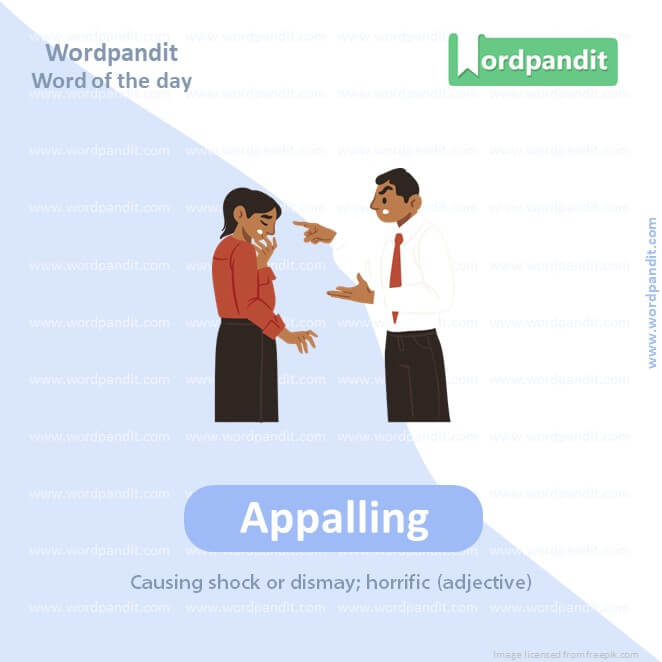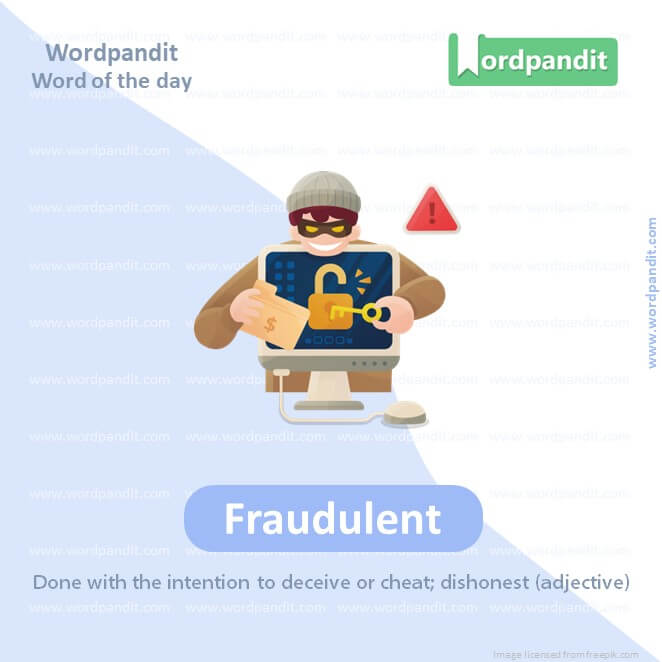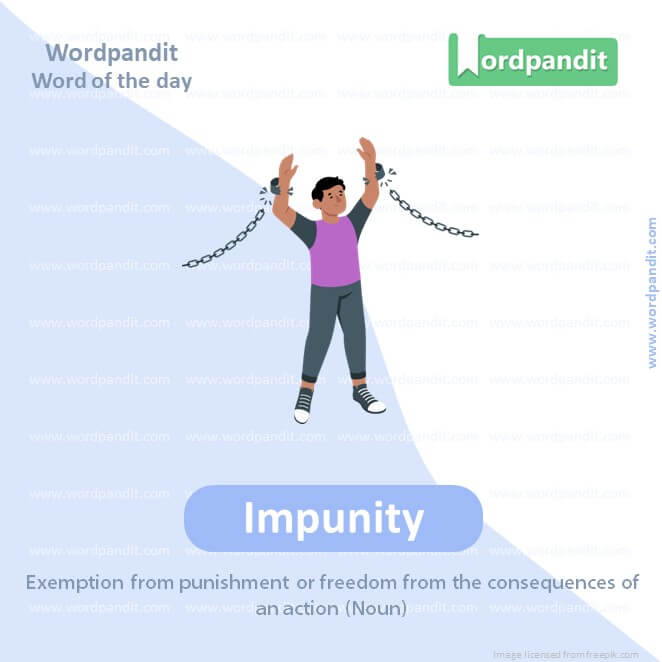Daily Vocabulary Words: List of Daily Used Words in Leading International Newspapers
Hi there. Welcome to this special section @ Wordpandit.
Our endeavour here is very simple: to highlight important daily vocabulary words, which you would come across in leading newspapers in the country. We have included the following newspapers in our selection:
• The New York Times
• The Washington Post
• Scientific American
• BBC
• The Guardian
• Psychology Today
• Wall Street Journal
• The Economist
We are putting in extensive work for developing your vocabulary. All you have got to do is be regular with this section and check out this post on a daily basis. This is your repository of words that are commonly used and essentially, we are posting a list of daily used words. Hence, this has significant practical application as it teaches you words that are used commonly in leading publications mentioned above.
Visit the website daily to learn words from leading international newspapers.

WORD-1: Appalling
CONTEXT: what happened in Russia was Islamist terror, an F.S.B. conspiracy, or some appalling combination of both, it augurs ill for us.
SOURCE: New York Times
EXPLANATORY PARAGRAPH: Appalling means shocking or horrifying, causing strong feelings of disgust or disbelief. It’s like when something is so bad that it makes you feel very upset or disturbed.
MEANING: Causing shock or dismay; horrific (adjective).
PRONUNCIATION: uh-PAW-ling
SYNONYMS: shocking, horrifying, outrageous, disgusting, abominable
USAGE EXAMPLE:
1. The conditions in the prison were appalling, with overcrowding and poor sanitation.
2. She was appalled by the appalling treatment of animals in the factory farm.
3. The company’s actions were deemed appalling by the public.
4. The news of the disaster was absolutely appalling.
WORD-2: Quoting
CONTEXT: He has a habit of quoting the poet Seamus Heaney and never lets an opportunity to recall his origins go to waste.
SOURCE: New York Times
EXPLANATORY PARAGRAPH: Quoting means repeating or citing something, especially using exact words or phrases from a source. It’s like when you mention what someone else said or wrote.
MEANING: Repeating or citing someone’s words, especially using exact words or phrases from a source (verb).
PRONUNCIATION: KWOH-ting
SYNONYMS: citing, referencing, repeating, quoting verbatim, excerpting
USAGE EXAMPLE:
1. She quoted Shakespeare in her speech to emphasize her point.
2. The journalist quoted the CEO’s statement in the article.
3. He often quotes famous philosophers in his lectures.
4. The book includes a chapter quoting scientific research on climate change.

WORD-3: Irreparably
CONTEXT: That complicity has damaged both his reputation and his relationship with the Irish people, perhaps irreparably.
SOURCE: New York Times
EXPLANATORY PARAGRAPH: Irreparably means in a way that cannot be fixed or repaired. It’s like when something is damaged beyond the point of being able to be restored to its original condition.
MEANING: In a way that is impossible to repair or correct (adverb)
PRONUNCIATION: ih-REP-uh-ruh-blee
SYNONYMS: irreversibly, permanently, irretrievably, beyond repair, hopelessly
USAGE EXAMPLE:
1. The relationship was irreparably damaged after the betrayal.
2. The hurricane irreparably damaged the coastal town.
3. His actions irreparably harmed his reputation.
4. The trust between them was irreparably broken.

WORD-4: Coalesced
CONTEXT: Such agitation coalesced around the demand that the prime minister, Leo Varadkar, boycott this year’s White House visit.
SOURCE: New York Times
EXPLANATORY PARAGRAPH: Coalesced means coming together or merging into a single whole. It’s like when different ideas or groups unite to form a cohesive unit.
MEANING: Come together to form one mass or whole.
PRONUNCIATION: koh-uh-LESST
SYNONYMS: united, merged, combined, fused, amalgamated
USAGE EXAMPLE:
1. The political parties coalesced to form a coalition government.
2. Their efforts coalesced into a successful fundraising campaign.
3. The diverse community coalesced around a common goal.
4. Ideas from various disciplines coalesced to create a new scientific theory.
WORD-5: Betraying
CONTEXT: Mr. Biden’s great-grandfather James Finnegan was born, a group of people gathered at a graveyard to castigate the president for betraying his roots.
SOURCE: New York Times
EXPLANATORY PARAGRAPH: Betraying means being disloyal or breaking trust, especially by revealing secrets or going against someone’s confidence. It’s like when someone you trust does something to hurt you or goes against your expectations.
MEANING: Being disloyal or breaking trust; revealing secrets or going against confidence (verb).
PRONUNCIATION: bih-TRAY-ing
SYNONYMS: deceiving, backstabbing, double-crossing, betraying trust, revealing
USAGE EXAMPLE:
1. She felt betrayed when her friend shared her private information with others.
2. The spy was accused of betraying state secrets to a foreign government.
3. His actions of betraying trust led to a rift in the team.
4. Betraying confidences can damage relationships irreparably.
WORD-6: Inflating
CONTEXT: New York state trial court found the former president liable for inflating his net worth and misleading banks and insurers in order to receive favorable loans for his various businesses and commercial enterprises.
SOURCE: New York Times
EXPLANATORY PARAGRAPH: Inflating means increasing or exaggerating something, especially numbers or prices. It’s like when the value of something goes up artificially.
MEANING: Increasing or exaggerating something, especially numbers or prices (verb).
PRONUNCIATION: in-FLEY-ting
SYNONYMS: increasing, exaggerating, boosting, raising, pumping up
USAGE EXAMPLE:
1. The company was accused of inflating its financial reports to attract investors.
2. Inflating prices during a crisis is considered unethical.
3. He was caught inflating his qualifications on his resume.
4. Inflating ego can lead to arrogance and conflicts.
WORD-7: Outrageous
CONTEXT: it still feels outrageous that he would get this unexplained courtesy after years of willfully defrauding the public.
SOURCE: New York Times
EXPLANATORY PARAGRAPH: Outrageous means shocking or extremely offensive, going beyond what is considered acceptable or reasonable. It’s like behavior or actions that are way out of line.
MEANING: Shocking or extremely offensive; going beyond what is considered acceptable (adjective).
PRONUNCIATION: out-RAY-juhs
SYNONYMS: shocking, offensive, scandalous, appalling, unacceptable
USAGE EXAMPLE:
1. His behavior at the party was outrageous and disrespectful.
2. The price hike was seen as outrageous by customers.
3. The politician’s remarks were deemed outrageous and insensitive.
4. The teacher was outraged by the student’s outrageous behavior in class.

WORD-8: Fraudulent
CONTEXT: At no point during his long career as a celebrity real estate mogul and businessman has Trump faced any meaningful consequences for his fraudulent, even criminal, behavior.
SOURCE: New York Times
EXPLANATORY PARAGRAPH: Fraudulent means involving deceit or dishonesty, especially to gain something unlawfully. It’s like when someone tricks others for personal gain through illegal or unethical means.
MEANING: Done with the intention to deceive or cheat; dishonest (adjective)
PRONUNCIATION: FRAW-juh-l- lee-yuhnt
SYNONYMS: deceitful, dishonest, deceptive, fraudulent, corrupt
USAGE EXAMPLE:
1. The company was accused of fraudulent accounting practices.
2. She was arrested for using fraudulent credit cards.
3. His promises turned out to be fraudulent schemes to cheat investors.
4. The investigation uncovered evidence of fraudulent activities.

WORD-9: Impunity
CONTEXT: He has operated for decades with a shield of impunity crafted from his shamelessness, his celebrity and his craven willingness to intimidate critics with litigation or even just the threat of litigation.
SOURCE: New York Times
EXPLANATORY PARAGRAPH: Impunity means exemption from punishment or consequences, often due to lack of accountability or enforcement. It’s like getting away with something without facing any repercussions.
MEANING: Exemption from punishment or freedom from the consequences of
an action (Noun)
PRONUNCIATION: im-PYOO-nuh-tee
SYNONYMS: immunity, exemption, impunity from punishment, immunity from consequences
USAGE EXAMPLE:
1. The corrupt officials acted with impunity, knowing they wouldn’t be held accountable.
2. The criminal operated with impunity in the absence of effective law enforcement.
3. Impunity for powerful individuals undermines justice and fairness.
4. The lack of consequences led to a culture of impunity in the organization.
WORD-10: Impeached
CONTEXT: They were there for him when he was impeached for trying to coerce the government of Ukraine into supporting his political prospects, and they were there for him when he was impeached for trying to overturn the results of the 2020 presidential election.
SOURCE: New York Times
EXPLANATORY PARAGRAPH: Impeached means to accuse or charge a public official with misconduct in office, typically leading to a trial or removal from office. It’s like formally accusing someone in a position of authority of wrongdoing.
MEANING: Accused or charged with misconduct in office, often leading to a trial or removal from office (verb).
PRONUNCIATION: im-PEECHT
SYNONYMS: accused, charged, indicted, accused of misconduct, facing trial
USAGE EXAMPLE:
1. The president was impeached for abuse of power.
2. The governor faced impeachment proceedings for corruption charges.
3. Impeached officials often undergo trials to determine their guilt.
4. The mayor’s impeachment shocked the community.
Vocabulary Daily Words
Among the myriad aspects of language learning, the role of ‘vocabulary daily words’ attests to their undeniable importance. These everyday words form the bedrock of communication. Whether used in casual chat or formal discussion, the fluency and understanding of ‘vocabulary daily words’ can significantly uplift the quality of interaction. However, the vital question is, how to effectively learn these ‘vocabulary daily words’?
The crux of learning ‘vocabulary daily words’ lies in a well-rounded approach that encompasses exposure, understanding, memorization, and practice. Rote memorization might seem like a quick solution, but it lacks context and, thereby, retention. Hence, opt for a diverse range of resources like books, newspapers, podcasts, and digital media. These will bring ‘vocabulary daily words’ to life, providing real-life usage examples and making the learning process inherently engaging.
Next, using memory-enhancing techniques can significantly improve retention of ‘vocabulary daily words’. Techniques such as flashcards or the Leitner System align with the principles of spaced repetition, allowing more effective and long-term learning. Incorporating mnemonic devices, associating new words with unique stories or images, can further facilitate this learning process.
The key to fully grasping ‘vocabulary daily words’ lies in practical usage. Make it a habit to use these words in your daily communications. Whether it’s a friendly conversation, a professional email, or a social media post, try integrating these new words. Doing so provides hands-on practice, strengthening your comprehension and application of these words.
In a nutshell, ‘vocabulary daily words’ are a treasure in the language learning landscape. By harnessing diversified resources, utilizing memory techniques, and actively using these words, your grip on the ‘vocabulary daily words’ will strengthen significantly. So, turn the pages, hit play, start a conversation, and let these ‘vocabulary daily words’ shape the story of your linguistic journey.










